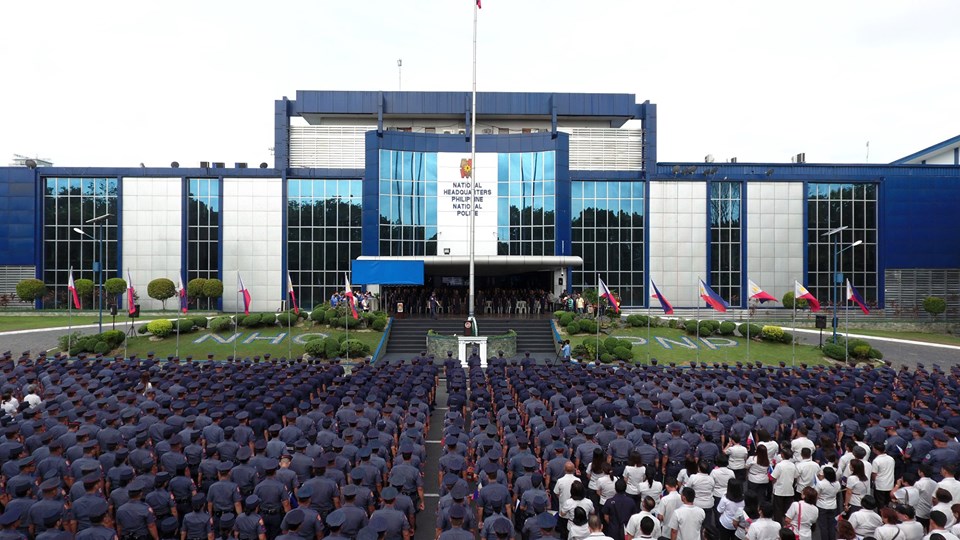News
Anti-child exploitation drive relentless amid quarantine: PNP

WCPC’s Anti-Trafficking in Persons Division conducted interviews of the victims and gathered more evidence to support the prosecution of the Australian offender. (File Photo: Philippine National Police/Facebook)
MANILA – Despite the implementation of the enhanced community quarantine against the coronavirus disease 2019 (Covid-19), the Philippine National Police – Women and Children Protection Center (PNP-WCPC) on Wednesday said it continues to coordinate with foreign partners to curb online sexual exploitation of children (OSEC).
“Despite the current lockdown situation brought about by Covid-19, our police officers continue their valiant efforts in investigating cases of online sexual exploitation of children in the country. This current situation will not hinder us from performing our sworn duty to protect the most vulnerable women and children. The Philippine Internet Crimes Against Children Center (PICACC) is still operational to help stop the spread of OSEC,” WCPC chief, Brig Gen. Alessandro Abella said in a statement.
Abella said the WCPC continues to locate 26 female child victims aged between 12 and 17 years old in the country who fell victims to an Australian child sex offender who was sentenced to serve 18 years and six months in prison on March 30 for sexually abusing Filipino minors and producing child sexual exploitation materials (CSEM).
The 52-year-old accused entered guilty pleas to 33 criminal charges related to in-person child sexual abuse and production and possession of CSEM before a court in Melbourne, Australia.
Following his arrest on June 15, 2017, by the Victorian Joint Anti-Child Exploitation Team, the Australian Federal Police (AFP) reached out to the PNP-WCPC to locate the female child victims in the Philippines.
WCPC’s Anti-Trafficking in Persons Division conducted interviews of the victims and gathered more evidence to support the prosecution of the Australian offender.
Graeme Marshall, acting superintendent of the Australian Federal Police (AFP) in Manila said his office and the Philippine Internet Crimes Against Children Center (PICACC) participating agencies continue to focus resources on eradicating this abhorrent criminal conduct and prosecuting offenders.
“These trusted and valued international partnerships are critical to the protection of the most vulnerable in our communities, particularly during this uncertain and challenging time,” Marshall said.
Meanwhile, International Justice Mission (IJM) Philippines director Samson Inocencio Jr. said economic circumstances could increase motivation to engage in OSEC.
“We can also surmise that child sex offenders abroad now have more time to spend online, and local traffickers have greater access to children in their homes – potentially increasing the demand for and supply of CSEM as well as livestreamed OSEC. We, therefore, encourage everyone to remain vigilant against OSEC activities in their communities and when they are online,” said Inocencio.
Inocencio also said he immediately reach out to the authorities if they have information about the crime happening in their area.
“We also call on tech companies to beef up child protection mechanisms on their platforms. Let’s continue to work together to end OSEC by ending impunity,” he said.
If there is report a suspected case of OSEC by texting ENDOSEC (space) (incident details) to 7444- 64 for Smart network subscribers; or directly connect with WCPC at (032) 410-8483 for the Visayas, and 0917-180-6037 or 0928-604-6425 for Mindanao.
The PICACC, which celebrated its first anniversary last month, is a collective effort to combat child exploitation across the Philippines by law enforcement – the PNP, the National Bureau of Investigation (NBI), the Australian Federal Police (AFP), and the United Kingdom National Crime Agency (UK NCA); in partnership with the non-government organization, IJM.
This collaborative international effort protects children through an enhanced global response to combatting the online sexual exploitation of children.





















